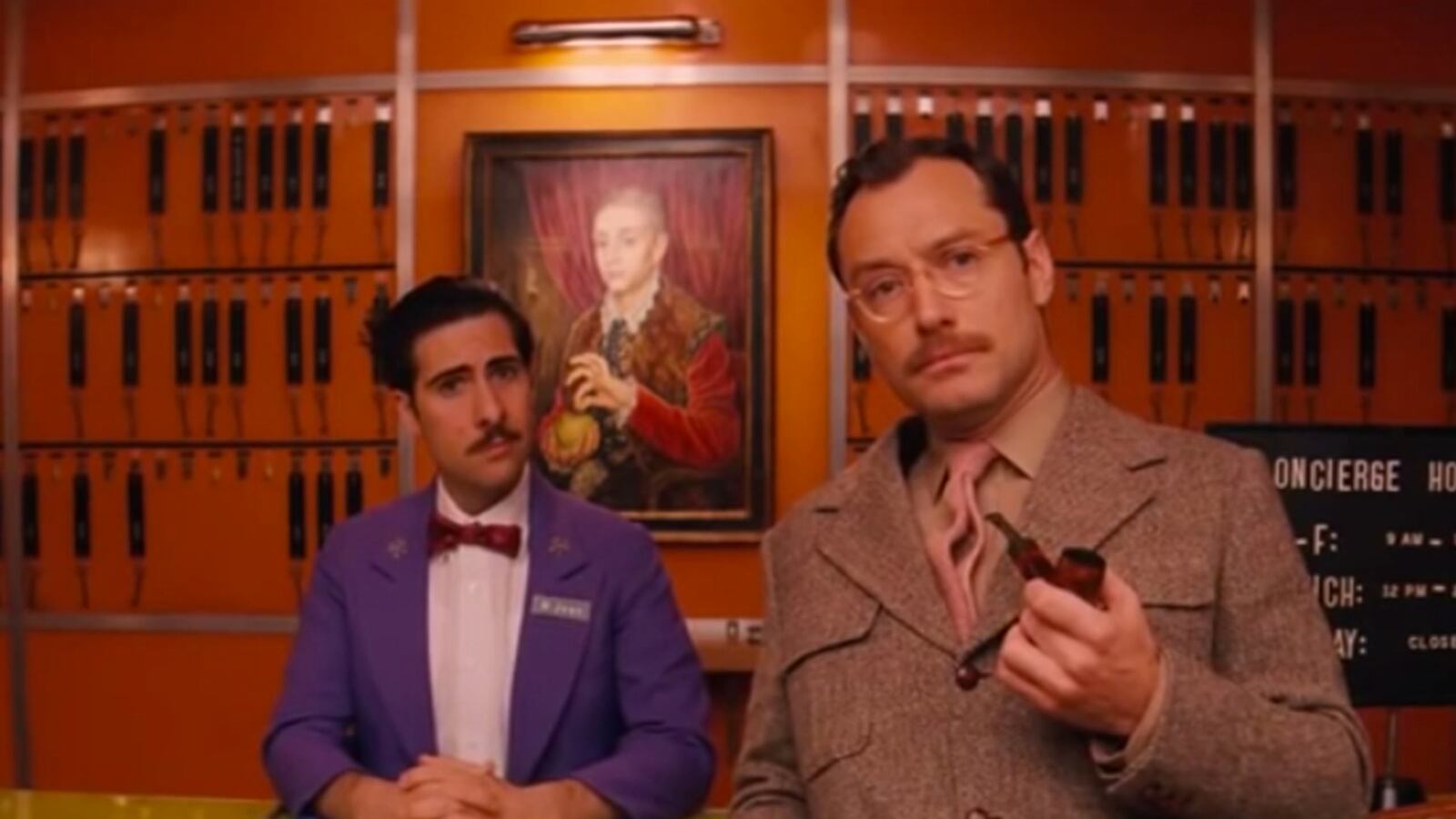I have a tenuous grasp of Twee. (And that’s Twee with a capital “T.” Not twee, which means the same thing. Sort of. I think.) I have read Twee: The Gentle Revolution in Music, Books, Television, Fashion, and Film, the new history of Twee. I have spent an hour on the phone with Marc Spitz, the author of Twee, having him explain Twee.
It is a genre, wrapped in a mystery, inside a cardigan.
There is a handy list on page 12 of Twee that identifies some common Twee characteristics—an awareness of darkness and cruelty in the world, a rejection of “cool,” a suspicion of adulthood—though the list is neither fully inclusive nor completely foolproof. I don’t quite grasp the parameters a category that includes Sylvia Plath, Hello Kitty, and Napoleon Dynamite.
Twee holds multitudes. Spitz has gently curated lists of utterly Twee books, music, and films online and in the back of Twee. Truman Capote and Judy Bloom are Twee. The Smiths, Buddy Holly, and Vampire Weekend are Twee. Rudolph the Red-Nosed Reindeer and Lost in Translation are Twee.
Spitz has written for Spin, Maxim, and The New York Times. His book Poseur: A Memoir of Downtown New York City in the’90s was published in paperback this year, and he has written biographies of David Bowie and Mick Jagger.
This is a heavily condensed version of my highly entertaining interview with Spitz that attempts to explain Twee, anti-popularity, and why I hated the movie Frances Ha.
What’s the common thread that holds these people together?
If you look at the book a certain way—the cover, the title, the subtitle—you might think, “Oh, it’s the hipster handbook,” but I always wanted it to be a history. I wanted something that connects Walt Disney and J.D. Salinger and Buddy Holly and Sylvia Plath to what we now know as Twee. I always wanted it to be that sweeping thing.
Is it just a book of things you like?
I don’t think it is. There’s a quality of sweetness at the core of all these people. There’s a hunger, a kindness at the core of all their art. They seem to live—certainly in the case of Wes Anderson—out of their time a little bit. And Walt Disney with his bow ties and suits.
So Twee is like the adjective form of Wes Anderson?
Right, it’s an extreme preciousness in manner and taste and behavior. At its worst, it’s extreme childishness—like boy-men in Judd Apatow movies.
And you wouldn’t call that Twee?
No, I would call Superbad a Twee movie.
It’s a really funny movie.
I think it’s a great movie. Jonah Hill and Michael Cera are justifiable movie stars in that movie. How they got to be movie stars is something I chart that is in the book. I start with The Graduate and how the sensitive, open-hearted, vulnerable, confused person can be a cinematic hero.
Michael Cera seems to play characters who are a little uncomfortable in their own skin.
Jesse Eisenberg is another one. And Jason Schwartzman in certain films.
Is being uncomfortable in your own skin Twee?
It depends on why you’re uncomfortable. If you’re uncomfortable because you’re too sensitive, emotionally naked, and vulnerable, then yes.
HBO’s Girls has become sort of the Twee Manifesto. Do you think it’s a show about not wanting to be an adult?
It’s about the pain of transition. You know the movie Kicking and Screaming? I see parallels between that and Girls. You’re out of that college and it’s that one moment when you’re trying to figure it out. You don’t have a meal plan anymore. You’re just thrust into the world and expected to become an adult. I see elements of great satire in Girls but also elements of real drama.

Was Season 3 about Hannah becoming good at something?
She got better as a writer, which you hope to do; I wouldn’t want to read what I wrote in college. She quit her job at GQ or wherever it was. She’s a Twee heroine. She gave up the job and the perks because it was corrosive.
There is something anti-popular about the people you’re writing about in the book. Is that a fair statement?
That’s a fair statement, but they are consumers. They might live in their bedrooms, but they’re surrounded by books and records and thrift store clothes—much of which they can buy with one click and have sent to them. There’s a sense of materialism, but they might make the clothes or find them at a thrift store or find that LP at a flea market. There is a sense of consumerism but also, for a lack of a better word, taste—curation and arrangement.
Radiohead: Twee or not Twee?
Not Twee. There are some artists like Bjork, Radiohead and even Beck—who looks Twee and has elements of Twee—who are sort of their own planets like the Rolling Stones or Steven Spielberg. They’re on their own plane.
Legos: Twee or not Twee?
In a sense, all vintage toys are Twee, but I have a personal distaste for Legos that I cannot explain. It’s probably Twee but not my kind of Twee.
What about Jimmy Stewart movies?
There’s a purity there, certainly, but you’re looking at a very conventional, good-looking leading man there. I will say that Christmas is very Twee, so It’s a Wonderful Life or Charlie Brown Christmas and hearing Vince Guaraldi Trio play “Christmas Time Is Here,” that’s very Twee.
Is having an old game console Twee?
I don’t think vintage for vintage’s sake is Twee. I don’t think playing Pac-Man or watching ’70s TV shows is Twee. It’s a little edgier than that. There’s a difference between kitsch and Twee.
I gotta ask about flannel.
Twees are not hipsters or ravers or neo-grungers, though you could have trappings of all that. Because of Brooklyn, hipsters get confused with Twees. They both settled in Brooklyn and other cities like it, but hipsters want to affect a jaded, I’ve-been-everywhere. Twees want to affect the opposite of that.
I listen to Grantland’s Hollywood Prospectus podcast, and Andy Greenwald—
Andy’s an old friend of mine. We were colleagues at Spin magazine.
Oh, that’s cool. He’s been going on and on about how much he loves Frances Ha, so I watched it last weekend knowing I would be talking to you, and I hated it. I was so bored. Tell me how to like that movie.
A lot of people say that about Greenberg as well. [Noah Baumbach co-wrote and directed both films.] I think you need a certain patience for Baumbach. His pace is less accessible than Wes Anderson. He’s less in-your-face with the design, and his humor is a more acquired taste. I have seen a lot of Greta Gerwig’s films. She’s a fascinating and polarizing figure. Why don’t you just watch it one more time down the road? Sometimes I don’t get an album the first time. I’ll listen to Andy Greenwald’s podcast, you’ll watch Frances Ha one more time, and we’ll reconvene. How about that?
That’ll work.
I have seen her at my local [Brooklyn] bar. The mainstream doesn’t know what to do with her. She was in that unnecessary Arthur remake. I really wanted to interview her for the book. She was one that got away. Sometimes you have to admit defeat at a point or you just get stalker-ish.
Maybe she’ll read this and call you.
She knows which bar to find me in.






